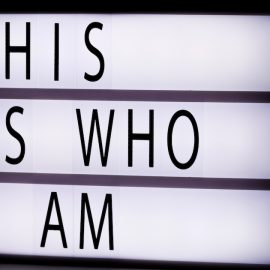

This article is an excerpt from the Shortform book guide to "Letting Go" by David R. Hawkins. Shortform has the world's best summaries and analyses of books you should be reading.
Like this article? Sign up for a free trial here.
What’s the frequency of fear? Does fear take over your life?
According to David R. Hawkins, one emotion with a low frequency is fear. Because fear has been connected with survival throughout our evolution, it’s highly pervasive and manifests in many different ways.
Continue reading to learn how to free yourself from fear.
Understanding Fear’s Frequency
Some fears seem small and insignificant, while others can prevent you from living the kind of life you want to. For example, a fear of spiders likely won’t affect you often, but a fear of leaving the house will prevent you from connecting with others and being adventurous.
(Shortform note: An extreme, irrational fear of something that most people consider harmless is called a phobia. People often change their lifestyles to avoid the circumstance or thing that triggers their phobia, and their daily existence may be restricted because of it. Luckily, phobias can be treated with professional help, cognitive behavioral therapy, and self-exposure.)
The frequency of fear is also problematic because its energy draws in the things you’re afraid of—if you believe something is going to happen, it often does. Once the thing you’re afraid of comes to pass, it acts as evidence of the fear, keeping the cycle of fear going. For example, let’s say you’re afraid to be vulnerable with others because you think that they’ll abandon you if you show the messier sides of yourself. Because you won’t show any vulnerability, people do often give up on getting to know you, and you feel more alone. Though your fear is actually what’s driving this loneliness, you take others pulling away from you as confirmation that the feeling is valid.
(Shortform note: Joseph Murphy also explores the self-fulfilling nature of fear in his book The Power of Your Subconscious Mind. He argues that every time you think negative thoughts, you block your subconscious mind from accessing both the useful information you have stored in your mind and the positive energy flowing from the universe that creates positive experiences. As a result, your subconscious mind creates negative experiences that align with your fears and worries.)
To free yourself from fear, Hawkins says to start by recognizing that you don’t need to be afraid of being afraid. As with any other negative emotion, you must learn to sit with fear if you are to release it. Recognize that it’s not protecting you, but rather holding you back. You can also shift your mindset by making decisions out of love instead of fear. For example, don’t eat a strict diet just because you’re afraid of developing a disease later on in life. Instead, choose to eat nourishing food that makes you feel good because you love yourself, and you deserve to be well taken care of.
| Further Perspectives on the Roles of Fear Fear isn’t always something to get rid of—it serves several necessary functions. First, fear can be an indicator that you have a limitation you need to break free from. Overcoming a limiting fear—such as a fear of driving—can make you feel empowered and free. Alternatively, sometimes fear does protect you—in truly dangerous situations, your fear can prompt you to act shrewdly and quickly. Finally, small doses of fear can be enjoyable and invigorating. Temporary increases in the hormones adrenaline and oxytocin make you feel less stressed and more alive. Despite the benefits of temporary experiences with fear, other experts agree with Hawkins that making decisions out of love is better than making them out of fear. When you make decisions with love, it means opening yourself to vulnerability, uncertainty, and fear, but choosing what you love anyway. This helps you discover what you really want and opens up new possibilities. If you make solely fear-based decisions instead, you’ll always end up going with the safest option and likely miss out on what you truly want and need. |

———End of Preview———
Like what you just read? Read the rest of the world's best book summary and analysis of David R. Hawkins's "Letting Go" at Shortform.
Here's what you'll find in our full Letting Go summary:
- How to move from feeling stuck to being happy and at peace
- The three ineffective ways we commonly deal with our emotions
- How to replace low-frequency emotions with high-frequency ones






